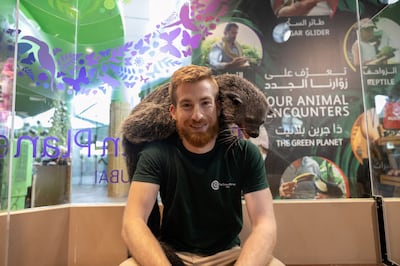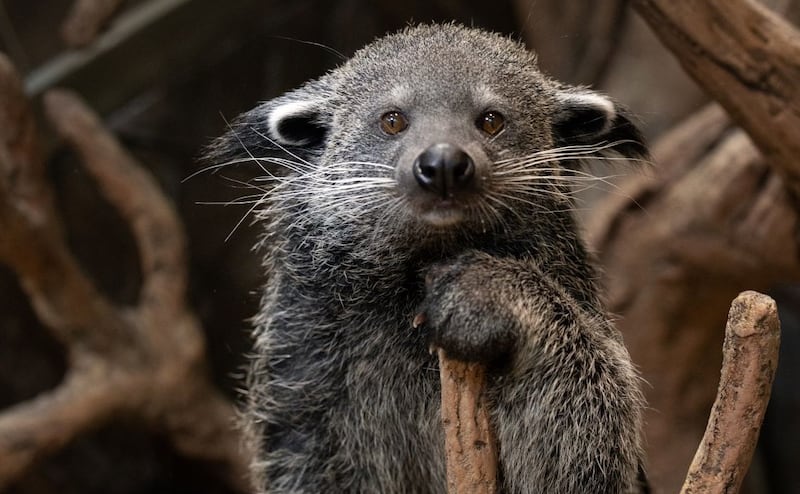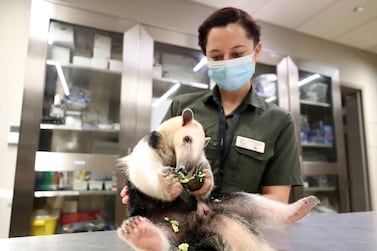The Green Planet’s diverse wildlife family just got a little bigger.
The indoor rainforest bio-dome, which is already home to more than 3,000 flora and fauna, recently announced that it is introducing a male binturong, also known as a bearcat, into its furry family.
Named Fluffy thanks to his adorable appearance, the animal aged 2 has the face of a cat, a body like a small bear and a tail like that of a monkey's. He weighs 14 kilograms, but can grow to a weight of 30kg and up to 80 centimetres long, which would make him the largest animal to reside in The Green Planet.
What is a bearcat?
Despite its name, the mammal is neither a bear nor a cat. Instead, it belongs to the Viverridae family, a group of small to medium-sized animals found in the eastern hemisphere.
They are characterised by shaggy black fur (hence Fluffy’s name), long ear tufts, whiskers and a prehensile tail, which means that it can be used to grasp objects. They are usually found in dense tropical rainforests in South-East Asia and, with populations in decline over the past years, have been classified as vulnerable.
They live high up in the forest canopy and rarely come down to the ground. They are good climbers and have strong feet and semi-retractable claws. Their hind legs can rotate backwards so their claws can have a good grip when climbing down a tree headfirst. They cannot leap between trees owing to their size but often sleep high up in them, curling up in a ball with heads tucked under tail.
Where did this little guy come from?

Fluffy’s arrival in the region makes him a first in the UAE.
According to The Green Planet, this will also be the first time in the world that a multi-species rainforest biodome has introduced the animal.
“Fluffy was born at a zoological facility in Serbia. He is a solitary animal, which means that he does not live in groups or families and, therefore, it was time for him to leave his parents and become an ambassador on behalf of his species and for all larger rainforest animals,” says Victoria Lynn, general manager, Dubai Holding Entertainment – Attraction.
“By joining The Green Planet, he will help to teach us more about the incredible bearcat species and help to educate our guests and visitors on why the protection of the environment and the bearcat habitat is so important,” she says.
Settling into his new quarters
According to Lynn, Fluffy is settling in well, and guests now have the opportunity to visit him.
Fluffy’s new home is located right in the centre of the biodome, and The Green Planet told The National he's free to roam around the entire indoor rainforest's space. This fulfils international zoological best practice standards and the habitat needs of the bearcat, according to the facility.
He has been spending time in his new home by taking naps and eating his favourite foods, which includes bananas, grapes and apricots. Fluffy is an omnivore, so cooked chicken is also on the figurative table.
Here are some other cool facts about bearcats, shared by The Green Planet team:
- Fluffy smells like popcorn. Bearcat species have scent glands located under their tails and, as they mark branches and foliage as their territory, they let off a scent similar to the popular theatre snack.
- They walk like bears with flat feet, with side-to-side movement.
- The meaning of the word binturong is unknown as the language it was derived from is now extinct.
- Bearcats have a special digestive enzyme capable of softening the tough outer covering of the fig’s seed. This makes it a “keystone species” in their rainforest’s ecosystem – essential to the survival of the entire rainforest.
- They make a lot of noise to communicate, including chuckles, growls and hisses. Expressive and communicative, they can even purr to show affection to each other.







